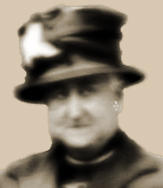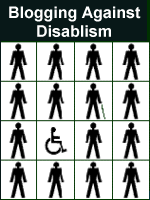Lady Bracknell's guide to etiquette in the theatre
Guy Pocock who, as regular readers may recall, penned "Brush Up Your Manners" in 1939, compiled the following list of things to leave at home, or at least in the cloakroom, when visiting a theatre, cinema, or concert hall:
Oranges
Peppermints
Chewing-gum
Food in crackly paper bags
Cosmetics and appliances
Nail scissors
Wet umbrellas and mackintoshes
Babies in arms
Children with bad colds
Elderly relations with bad coughs
Lady Bracknell worked in what is called "front of house" for a local theatre for some years, and can confirm from personal experience that the manners of theatre audiences in the provinces fall generally very far short of the ideal. She has therefore compiled her own list of rules which novice theatre-goers may find useful.
- theatres generally contain several hundred seats. The later you arrive, the more difficult it will be to navigate by seat and row number for the simple reason that persons already seated will have obscured those numbers. If, when taking your ticket, an usher gives you directions to your seat, he or she is not doing so for idle amusement. It will save time - and be considerably less wearing on the nerves of all concerned - if you listen to these directions and follow them. If you have failed to follow them, and are consequently ejected from the seat which you have chosen at random, it is bad form to snarl viciously at the usher who asks you to move.
- if you are a member of a large party, and the organiser did not book in sufficient time for all 34 of you to sit together, it is not acceptable to decide as one to just sit together anyway and then to glare in a corporately menacing fashion at the innocent souls who simply wish to sit in the seats they have pre-booked.
- Do not attempt to carry bottles of alcohol into the auditorium. To do so is neither big nor clever. No doubt you have not the slightest intention of wasting the precious liquid by dropping the bottle, but accidents do happen, and broken glass is extremely dangerous.
- if you arrive late and are ushered to your seat during a scene-change, try to hold the difference between a scene-change and an interval in the forefront of your mind, and move to your seat as quickly and quietly as possible. Now is really not the time to worry about who is sitting next to whom and, in any event, the actors will not wait for you to sort yourselves out because they will be blissfully unaware that you have had to be sneaked in under cover of darkness.
- by the same token, if you know that you have never mastered the art of arriving anywhere on time, don't book seats in the middle of the longest row.
- for your own sake, check the date on your tickets before you leave the house. Likewise, if there is more than one theatre in the vicinity, check the theatre details as well. (Should you get this wrong, the theatre staff will not laugh in your face. They will, however, laugh uproariously the moment you are out of earshot.)
- "No cameras in the auditorium" means no cameras in the auditorium. At all. For any purpose. Should you have a burning desire to capture little Billy's first trip to the theatre on film, either stifle it entirely, or control it until you are in the foyer, or on the pavement outside the theatre.
- when you are requested to turn your mobile phone off, kindly resist the temptation to demonstrate how much cleverer you are than the theatre management by merely turning the volume to "mute". Mobile phone signals - whether or not the handsets are muted - can and do play merry hell with theatre sound systems.
- try to remember that, in a theatre, the performance is live. You are not at home with a DVD or a video tape, and you can therefore not rewind. If you were not concentrating, you have only yourself to blame. Please desist from asking your companion what that bloke in the velveteen smoking jacket did in the last scene, or you will break the concentration of those of us who are following the plot.
- do not hurl vocal abuse at the performers unless you want to be summarily ejected from the auditorium. If you are not enjoying the play, leave quietly and without fuss. Preferably at the next interval.
- if you absolutely must unwrap a sweet - for example, if you have a tickle in your throat - please do so with all possible speed. The process of untwisting a cellophane wrapper is no less noisy and distracting for being strung out over thirty seconds.
- the people who swarm about the stage when the lights are low, and who are dressed entirely in black, are members of the stage crew. There is no need to applaud them when they change the set. If they had wanted to be applauded for their work, they would have chosen careers as performers.
- should you be determined to demonstrate to all and sundry that you are entirely ignorant of the mores of the theatrical world, there is no more effective way of doing so than to applaud the entry of an actor whom you recognise from the television. Unless, of course, it is to so far forget yourself as to comment loudly to your companion about how much older/fatter/shorter said actor looks in the flesh.
- it is not unusual for modern productions to contain full-frontal nudity. Kindly refrain from vulgar sniggering.
- if attending a matinee performance is an unwanted part of a package deal involving a coach trip to a large city with lots of shops, kindly do not use your time in the theatre to discuss your purchases with your companion whilst roundly ignoring the performance. No-one is holding a gun to your head. Large cities contain many establishments in which you may be seated and may consume restorative cups of tea, and where conversation is not frowned upon. Go to one of those instead, and meet up with your coach when the performance is over.
- should you wish to leave your seat during the interval when others in your row have chosen not to, try to exit from the end of the row which will inconvenience as few people as possible.
- should you and your companion/s be in the habit of conducting friendly arguments about who will pay for the ice-creams, please resolve your differences before approaching the vendors. Intervals are of a finite duration, and it is difficult enough to get everybody served before the curtain goes up without having to endure three middle-aged women all trying to outdo one another in generosity.
- similarly, if you offer to pay for a bar of chocolate and a carton of Kia-Ora by means of a cheque, your offer is unlikely to be very warmly received.
- if you are attending a pantomime, and are encouraged by the performers to clap along to the music, do at least try to clap in time.
- on leaving the auditorium, do everything in your power to resist the temptation to mill aimlessly. Doing so creates a bottle-neck, and is most discourteous to those persons behind you who may have very good reason for wishing to expedite their departure. Not everyone travels by car.
It should not be necessary to memorise every last detail of this list. All that should be required is to understand that you will not go far wrong if you take the feelings of others (the theatre staff; the actors; and other theatre goers) into consideration throughout the duration of your visit.











9 Comments:
I hope her Ladyship will permit me to make a few additions
* Consider where your legs and feet are in relation to the seat in front. People will feel it every time you kick the back of their seat even if you do so inadvertantly. Some people will feel it very badly indeed.
* If you are aware that you snore or have any respiratory complaint, do your utmost to stay awake during the performance. Even if it is Alan Ayckbourn.
* Please make sure your appearance is as low-maintenence such that you don't need to take up a sink in the Ladies' for time-consuming interval beautification. Similarly, don't stand around in the bathroom having conservations; there is no space, and no time and a queue stretching half way round the planet.
* If you are mobility impaired but not a wheelchair user, it is advised to wait until the auditorium is cleared before leaving if possible. That way you can make your way out at your own pace without holding up, or having your standing time prolonged by, other people.
Ah yes - the Goldfish has reminded Lady Bracknell that she had meant to include a rule relating to acceptable conduct in the sorts of seats which are all joined together, and where the vibrations from the slightest fidget are passed unerringly up the spine of the person who is most likely to find them intolerably painful.
Lady Bracknell's memory is clearly not what it used to be....
MIss Katie would wish to make it known to her ladyship that she heartily enjoyed her ladyship's post about essential etiquette in the theatre.
Having being a theatre goer and performer, Miss Katie agrees with perfect etiquette each time that people should observe as it is polite and good manners. It should also be noted that Miss Katie was a highly sought after star of productions.
I would not like to be sitting behind Lady B' in the 1/6's as I don't have x-ray eyes to see through her hat!
Another good way to upset your neighbour in the Kinema, Teatro or flea-pit is to forget to take out the moth-balls out of your tails!
petexx
Another irritation: The sssccchhhhluck of pickled eggs being removed from the jar or the crunch of pickled onions being munched whilst watching the Pathe newsreels!
Disgusting of Leytonstone
Good Morrow Lady Bracknell..
I have taken my courage into my hands to reply, having noticed your link to Graeae, I worked for Graeae in 1985 in their T.I.E production of 'Practically Perfect'. I am indeed a thespian of stage and screen.
Regards LB xx (The Second)
Lady Bracknell warmly welcomes Lady Byron to the pages of her humble blog, and is particularly gratified to be in the presence of "a turn".
What about the theatre-goers who DON'T follow Lady Bracknell's advice -- i.e. the ones who respond (loudly) to the production, or those who talk incessantly? How do we polite folks make them stop, so we can enjoy the show?
In such circumstances, Lady Bracknell favours glaring icily at the perpetrators.
Should this not be effective, she would have no hesitation in complaining to the front of house staff.
(Lady Bracknell is reminded of the fact that a gentleman who shushed some noisy fellow patrons of a local cinema was later stabbed for his pains. She hopes that this would never happen with members of a theate audience. Nevertheless, as she would not wish any of her readers to risk injury, she counsels against taking the law into one's own hands in these matters.)
Post a Comment
<< Home